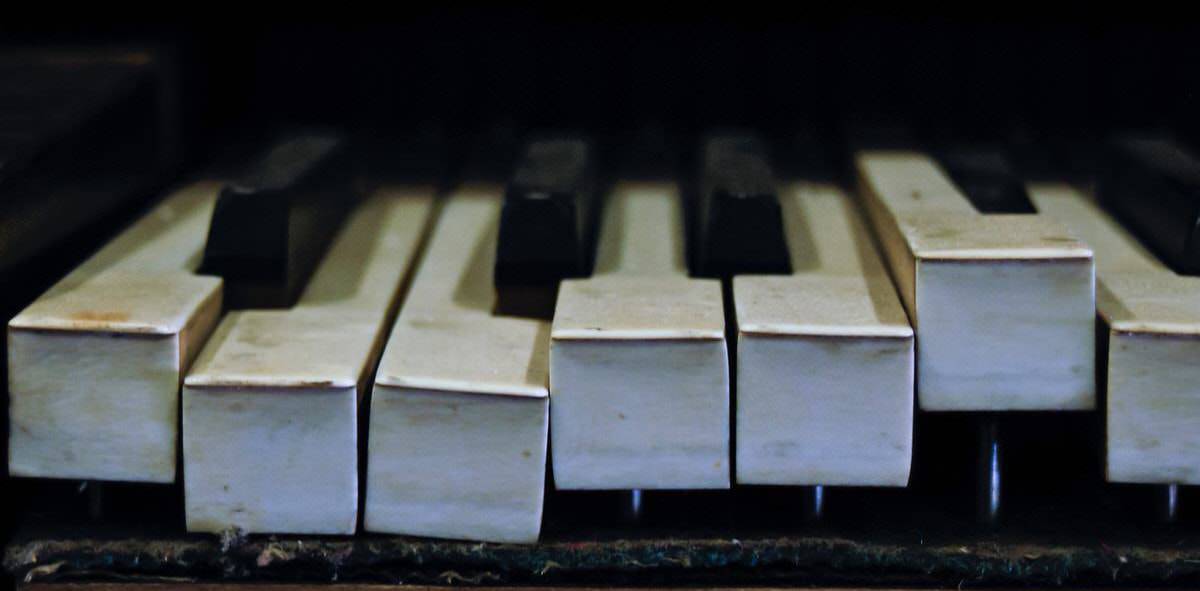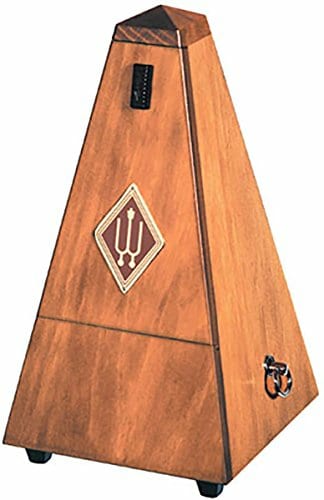Piano Practice
Struggling to structure your piano practice?
Practice is the element of playing a musical instrument that’ll make or break you. That’s why we have created these dedicated proven piano practice tips that you need to know as part of our ‘Beginner’s Guide To Learning Piano’ series.


Proven Piano Practice Tips You Need to Know
Practice. If you do it regularly enough, you’ll be great. We all know this. So why is practice so difficult?
Motivation is the key. Without motivation, you’ll not push yourself to go back to the instrument day after day. So how do you get motivated?
By winning. Yes, that’s correct. Winning. You’re in constant competition with yourself, and when things go well, you feel like you’re winning. When you’re in this state of mind, it’s easy to practice. It’s the circle of life – winning more gives you more motivation, so you practice more. Practising more means you win more, so it gives you more motivation. And that goes on and on exponentially.
So if it’s that easy, why is practice still so difficult?
The answer? Because it’s not that easy! Just practising isn’t good enough. You could practice for ten hours a day and not progress.
So if it’s not the quantity of practice that puts you onto the circle of life, what does?
Quality.
Practising for 15 minutes per day, focused, useful quality practice is far more beneficial than ten hours of unfocused, ‘auto-pilot’ practice.
So all you need is quality practice to be able to jump aboard the circle of life train?
Nope! Nothing is that easy. Combine quantity and quality, and you’ll finally be a first-class passenger.
Read on to find out how to buy your first-class ticket, and how to stay on the train for as long as you want…

Structure
How long should i practice piano for each day?
15 to 20 minutes is a great place to start, and probably no longer than 45 minutes at a time. After this length of time, us humans have a tendency to zone out – and then the practising becomes less efficient. As a rule of thumb, when you feel your concentration waning, stop. Be proud that you just showed up to your practice session, and don’t worry how long you practice for.
How often should I practice the piano?
This one is an easy answer – practice daily. That way, you’ll turn your piano practice into a habit. A concise, focused daily practice is much more beneficial than twice per week an hour at a time. And remember, if you’re thinking “but how do I find the time to do 20 minutes a day?!?” – just steal some of your time from social media over to the piano. We do after all, spend on average 142 minutes on social media per day!
When should I practice piano?
It makes no difference when you practice, just as long as you do practice. Experiment with creating a fixed schedule for yourself vs being ad-hok. See which options work best, and stick to it.
Top Tips
1. Remove Possible Distractions
Think of your practice time as ‘you time’. You are hopefully playing the piano because you want to; so switch off your phone, tablet, computer, watch, and any other gadget that’ll distract you!
2. Get Comfortable
Cumulatively, you’ll be spending a lot of time at the keyboard, so get comfortable. Set things up just how you like them. A glass of water close by. A pencil and paper for making notes. Then just like a Jedi Knight, zone in and focus.
3. Set Goals
Choose what you want to accomplish, and make it something you can achieve in the session. By concentrating on the outcome, you get there faster and more efficiently.
Perhaps Monday you’ll learn the first twelve bars/measures. Then Tuesday you’ll learn the last twelve. Wednesday can be the difficult bit in the middle. Thursday can be reminding yourself of everything you’ve learnt so far, and Friday can be trying to play the sections without the music (from memory). Whatever you need to do, set your goals in writing and make them happen. And when you achieve your goal, celebrate! I recommend a nice bottle of red…
4. Say Hi To Bad Habits
Nobody is perfect the first time. Consciously know that until you’ve repeated a section a few times, you’ll make mistakes. Be as methodical as possible resolving these mistakes, because if you don’t, you’ll find bad habits start to creep in.
So when you notice a terrible habit – say hi to it. Acknowledge it’s there, and crush the little blighter before it’s too late…
The same goes for fixing technical issues with things like posture and fingering. Although it takes longer upfront, it’ll pay dividends later on and will save you a ton of time.
5. Keep It Fresh
Have you ever driven to a place, and when you arrived, you had absolutely no memory or recall about the journey. You drove completely on ‘brain auto-pilot’. The same thing can happen when practising the piano.
If you practice the same way every time, your progress will slow, your motivation will shrink, and the piano will end up a chore. You can fight this little gremlin by alternating your practice techniques.
This can be as simple as playing with your eyes closed. Doing one hand only. Missing out every other note. Skipping every note that your thumb plays. Playing everything really quietly, or extremely loud. The list is endless. Be inventive. And whatever you do – don’t ‘just’ play the same thing again, and again, and again…
6. Be Your Own Teacher
We all learn best when we have someone over our shoulder, giving us their feedback. Sadly, unless you own Amazon, you’re unlikely to be able to afford a personal piano teacher 365 days a year. But Mr Bezos can keep his squillions because we don’t need them. We have our own personal teacher right inside us.
Firstly, it’s more than possible that at least 50% of the time you are playing the piano, you’re too busy concentrating instead of actually listening to what you’re playing! It sounds silly, I know. But it’s true… So now that you’re aware of it, fix it! Listen to your playing WHILST you play…
Secondly, we live in an age where you can make a decent recording of your playing with nothing more than your phone. So do it. Watch it back and self-critique. Keep doing this until you improve.
And even if Mr Bezos wanted to hire him, he couldn’t afford my personal teacher!
7. Starting From The Beginning
It feels right to start a piece at the beginning. The problem is if you do that every session, your first ten bars will sound amazing, and yet be disproportionately practised compared with the rest of the piece. Mix it up. Start at the end! Or in the middle! Or close your eyes and randomly pick a section. Just don’t always start from the beginning!
8. Don't Just Play The Easy Bits
It feels great to play sections we know well. However, if that’s all you ever play, you’ll have half of the piece to a fantastic standard, and the more difficult half will be a disaster. And yes, you’ll naturally be drawn to the easy bits, which leaves the problematic bit out in the cold. All alone. Shivering for some warmth and love.
Now think about this logically. If you were to consciously choose what needs more practice, it would be the tricky part. Right? That requires more love and attention. The easy part will look after itself.
So don’t ignore this. Go find that difficult part and warm it up…
9. Try Something New
Sight-reading is an excellent exercise to round off your practice with. There’s no pressure to perfect the piece, and it can be a lot of fun too! It also allows you to test your piano playing skills out on a completely different piece – and even a different genre.
10. Metronome
The metronome is there as your friend, not foe. So use and abuse.
For faster, difficult passages, set your tempo at half the ‘finished’ speed. Practice the section every day, and every day increase the speed by 5 points. You’ll have so gradually increased the tempo, that before you know it, you’ll be at full speed.
And here is a bonus tip – always try and overshoot by 10%. If you need to be at 150bpm, make sure you can play it at 165bpm – that way 150bpm will seem easily manageable!
If you need a good metronome, we highly recommend the Wittner Metronome below.
11. Set Rewards
Remember in number three I mentioned a nice bottle of red? I thought this was important enough to mention it twice!


DESIGNED FOR: Keeping Time and Practice Tempo
COMES WITH: A Winding Key
FEATURES: Produces The Visual Pendulum Signal Along With An Audible Tick
COMES WITH: A Winding Key
FEATURES: Produces The Visual Pendulum Signal Along With An Audible Tick
8.5/10
Wittner Metronome
When you check the price above, you’ll see there are loads of great places to buy this item. Our personal favorite is Gear4music.
It is the largest music retailer in the UK and fast becoming the most respected online music shop in the US too. Their customer service is excellent, they have competitive prices, really fast shipping, and usually have the longest guarantee.
Most professional musicians use Gear4music, so there is no reason why you shouldn’t too!
PROS
- Excellent Craftsmanship
- Famous Wind-Up Mechanism
CONS
- None!
The TedScore™ is our unique system of scoring products.
The professional musician who wrote this article combined many things,
from the product build, manufacturer’s reputation through to feedback
from other users, to create our famous TedScore™.
The professional musician who wrote this article combined many things,
from the product build, manufacturer’s reputation through to feedback
from other users, to create our famous TedScore™.
Exercises
Exercises are a necessary evil. We have to do them in sports to warm-up, and playing piano is absolutely a sport for your fingers (and mind). There are many different exercises that strengthen your fingers, but the main ones are:
Scales et al
Yes I know they can be more boring than watching a politician talking about Brexit – but they are important. And they do their job well. So yes, you do need to do them!
A Dozen A Day
All pianists start their life playing from the Dozen A Day series. Our Founder, Robert Emery, remembers playing these exercises twenty years ago! And there is a reason they have stood the test of time.. they’re brilliant! As a starting point, there is simply nothing better.
Hanon
Cortot
The rather grandly named ‘Rational Principles of Pianoforte Technique‘ isn’t in reality nearly as pompous as it sounds. Cortot has some serious fans, and with comments like ‘if you want to play piano buy this book’, it’s clearly worth a look at…
Czerny
Some pianists firmly believe in the Czerny exercises. Some are totally dead against them. I personally used them as a child, and hated them. However, they did work. So what’s best – hating something that works, or loving something that doesn’t?!
Chopin
Yes, yes, I know he is a composer. But for the slightly more advanced pianist, Chopin wrote a book of Etudes, or studies in English. Not only are these beautiful, but each one targets a specific technical difficulty as a pianist. You really can’t beat them!
Piano Practice Bonus Tips
1. Hands Separate Practice
Playing different things with both hands, at the same time, can seem terrifying at first. By jumping straight into playing with both hands, you’re confusing your brain. You’ll make mistakes, and your learning will be slow and inefficient.
Be kind to your brain! It’s your friend.
Work on each hand separately. Make sure you get the section to the point where it feels comfortable. Only then should you learn the same section, but the other hand. Get it to the same standard.
And here is the bonus tip – make sure you can play both parts, hands separately, with your eyes closed 90% of the time. You see, when you play hands together, you can’t look at both hands 100% of the time. In doing this hand separate work, you’ll build up your muscle memory, so when you put the hands together, you’ll be flying!
So finally, put your hands together – slowly at first, and then increase speed. Now celebrate with a glass of red (again)…
2. Jump Practice
If you really analyse your mistakes, you’ll find one of the significant issues with playing the piano is jumping. No, not like on a trampoline. Your hands, jumping from one hand position to another.
In the process of moving to a different location on the keyboard, it’s highly probable that you’ll land slightly in the wrong place. If this happens, you can create wrong notes in your beautifully exquisite and divine playing.
So how can we eliminate these mistakes? By practising our jumping.
When I was younger, I spent hours practising the jump from one chord to another. I repeated it 100, 200, 300 times until I could do it perfectly, every time, with my eyes closed. That way, when I came to that difficult hand position movement in the piece, my muscle memory would take over, and all would be right in the world again!
3. Be Consistent
Your brain learns every time you do something new. It creates a neuron, like a little branch of a tree. Every time you repeat the EXACT same thing, with absolutely no differentiation, that branch gets a little stronger. If you do the task enough times, in precisely the same way, that branch becomes a solid arm. This is the point where your body and mind can just do something ‘without thinking about it’.
Conversely, every time you alter something, a new branch is created. If you play the same passage of music four times, and each time you use a different fingering, you’re creating four branches.
So what’s the issue with that? A branch acts like a path that your brain walks down. It has to choose one of the four options you’ve created. The issue is that instead of one strong option, you have four weak options. This just confuses your wobbly gel of a head and slows the processing time right down. The result is a mistake.
Piano fingering is so vitally important that your wobbly gel needs to know precisely what finger to put where. So don’t leave things to chance. Pick a fingering, and stick with it. Learn it. And always use it.
4. Recommended Reading
Here are some great books that really helped me when I was starting out and I regularly recommend them to students to this day.
Music Practice: The Musician’s Guide to Practicing and Mastering your Instrument like a professional
I also highly recommend you include How to Read Music in 30 Days in your must-read list. If haven’t already read our guide on How To Read Sheet Music, then do check that out as well.

Piano Practice - Summary
If you’ve learnt one thing from all the above, it has to be the following:
Don’t leave practice to chance. Structure it. Be conscious and never go on ‘auto-pilot’. Shorter is absolutely sweeter. Print off the list and read it at the start of every week. And above all, get that corkscrew ready…
About the Author
Dawn Hardwick
Dawn Hardwick hails from the small town of Mountain Ash, in the Welsh valleys where she began her piano studies. Dawn attended the prestigious Chetham's School of Music studying with Alicia Fiderkiewicz followed by the RWCMD with Richard McMahon and Philip Martin, and continued her performance studies at the Royal College of Music under the tutelage of Julian Jacobson.
Dawn is an experienced concerto soloist, with a varied repertoire from more traditional piano concertos to contemporary collaborations and experimental music. Most recently, she performed John Psathas’ double concerto ‘View From Olympus’ with percussionist Dame Evelyn Glennie and the British Sinfonietta to great acclaim, and was subsequently invited to perform with Dame Evelyn at the Southbank Sky Arts Awards, broadcast on the Sky Arts channel, and also on BBC One’s ‘The One Show’.
One of her great loves is orchestra/ensemble playing, and she regularly works as an orchestral pianist/celeste/keyboards player with many of the UK's top orchestras both at home and on tour.
Dawn regularly performs as an accompanist for various musicians, and has been involved in many radio and television broadcasts such as James May’s ‘Man Lab’, BBC One's ‘The One Show’ and the Southbank Sky Arts Awards. She was the pianist for English Touring Opera’s production of Tippett’s ‘King Priam’ for which they won an Olivier Award and has recently been working with animator Gregoire Pont in his performances of ‘Cinesthetics’ – live animation to the solo piano music of Ravel, in association with Maestro Arts.
Other posts by this author
Get the 4 Things I’ve Been Loving, Using and Reviewing
Instruments, Gadgets, Books and More…
Every Friday, I send out an exclusive email with the four most amazing things I’ve reviewed or used that week.
It could include exclusive giveaways or chances to interact with me, instruments, books, gadgets, music, new techniques/tricks, and — of course — all sorts of fun musical stuff I dig up from around the world.
These ‘4-Feature Friday’ emails are only available if you subscribe to my e-mail newsletter.
Read the next post in this series:




